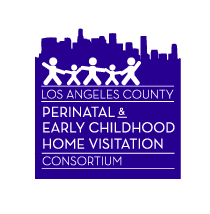Investing in Infant and Early Childhood Mental Health
Written By: Dayanara Ruiz and Anna Ghukasyan
Our nation’s children and families are under significant and escalating toxic stress, from the COVID-19 pandemic, an unstable economy, and longstanding historical and systemic issues such as poverty, racism and other forms of community and individual trauma. This is especially true for families of color with young children. The deepening mental health crisis for children and youth has generated significant attention and action by policymakers, including the Biden Administration’s strategy for addressing children’s mental health, and California’s historic $4+ billion investment in the Children and Youth Behavioral Health Initiative and other state efforts. However, without a clear plan or dedicated funding, California will miss serving the critical needs of infants and toddlers who not only are experiencing their own mental health crisis, but also represent an opportunity to move our systems of care upstream toward true prevention and mental health promotion when it can be most impactful across a child’s lifespan.
What is Infant and Early Childhood Mental Health? Young children under age 5 can — and do — suffer from mental health conditions. These conditions are often difficult for providers and parents to identify and address because young children handle emotional experiences and traumatic events differently from adults and older children. Furthermore, infant and early childhood mental health also includes a child’s social emotional development and how well they are able to interact with their environment and communicate with their peers and adults. According to Harvard University’s Center on the Developing Child, by improving children’s environments of relationships and experiences early in life, society can address many costly problems, including incarceration, homelessness, and the failure to complete high school.
Healthy social and emotional development looks like:
Relationship-building with their peers and adult caregivers
Expressing and managing their emotions
Learning and playing within their environment
A large portion of an infant’s brain, around 90%, develops in the first 5 years of their life. During this developmental period, it is crucial that infants and toddlers develop healthy social and emotional skills as a base for future socioemotional well-being. Young children may experience mental health challenges through a myriad of adverse childhood experiences or ACEs, including but not limited to abuse, neglect, or other household challenges like a caregiver with a mental illness or divorce. ACEs can also include environmental conditions that disproportionately impact entire families and communities, particularly those of color, such as police violence, family separation from immigration enforcement, and racism and discrimination.
Unlike their older peers, young children’s mental health concerns can go unnoticed by the adults in their lives. If left unaddressed, ACEs accumulate and can become a source of toxic stress, contributing to future health and mental health consequences as a child grows into an adult. However, toxic stress is preventable and can be mitigated through strong, nurturing relationships with adult caregivers, as well as interventions designed to support the relationships between young children and their adult caretakers, such as dyadic care and family therapy, home visiting, and infant and early childhood mental health consultations. Advocating for policy change around social and emotional development in young children can help protect them from life-long negative impacts of trauma and mental health challenges, as well as reducing disparities in mental health outcomes for children and youth of color as they enter the next developmental stage of their life.
This moment in history could be pivotal in the landscape of California’s early childhood mental health. Conditions created by the pandemic, such as isolation, economic stress, and community trauma, are all proven to negatively impact a child’s ability to thrive. It is vitally important that young children and their parents and caregivers receive the supports and interventions necessary to support their mental health during this critical time.
Given the need for early childhood mental health services and supports for young children, parents and caregivers of young children should have the necessary resources to advocate for their children’s mental health.
Below is a list of resources for parent and community advocacy:
The Children’s Partnership Early Childhood Mental Health Factsheet
Addressing Infant and Early Childhood Mental Health Needs: Opportunities for Community Solutions
Office of the Surgeon General - ACES Aware Policy, Research, and Advocacy Briefs
There are also currently two bills of interest in the state legislature that would support the issue of early childhood mental health. Both these bills are headed to the Governor’s desk for signature:
AB 2281 - Early Childhood Mental Health Services Act
This bill would award grants to county mental health or behavioral health departments to fund partnerships between early childhood service providers and county mental health entities to improve access to, and quality of services and supports for children from birth to 5 years of age, inclusive, and their parents, families, and caregivers, with emphasis on prevention and early intervention and disparities.
AB 2806 - Preschool: Expulsion and Suspension
This bill would eliminate expulsions and suspensions in preschool and childcare settings while providing an early childhood mental health consultation service.
References:
https://developingchild.harvard.edu/science/deep-dives/mental-health/
https://www.thewholechild.org/parent-resources/age-0-5/how-to-identify-child-abuse-ages-0-5/
https://developingchild.harvard.edu/science/key-concepts/resilience/
